New Scientist covers the latest developments in science and technology that will impact your world. New Scientist employs and commissions the best writers in their fields from all over the world. Our editorial team provide cutting-edge news, award-winning features and reports, written in concise and clear language that puts discoveries and advances in the context of everyday life today and in the future.
Elsewhere on New Scientist
Ask a silly question • Exploring the peculiarities of human physiology can bring serious benefits
New Scientist International Edition
Asteroid dust ready for its close-up
Ancient ecosystem revealed • Analysis of rocks in South Africa reveals a network of organisms thriving in the sea 3.4 billion years ago, adding to evidence for an even earlier origin of life, finds Michael Marshall
Endometriosis takes six years to be diagnosed due to a lack of awareness
Slim hope remains for resuscitating ailing moon lander
First ‘thermodynamic computer’ • A prototype computer harnesses random physical fluctuations – or noise – to run calculations
Seaweed could help avert global famine after a nuclear war
Life expectancy gap between men and women is closing
Humans reached China thousands of years earlier than we thought
Analysis Technology • What does Ukraine’s million-drone army mean for the future of war? In 2024, the besieged nation is likely to have more drones than soldiers in its armed forces. It is changing the way war is waged, finds David Hambling
Mass death of elephant seal pups raises fears of bird flu spreading in mammals
Mild haemophilia may add an extra year or two to life
Seabed trawling is a major source of global CO₂ emissions
Beeping shoes boost walking ability in Parkinson’s disease
‘Quantum vortex’ mimics black holes • Researchers have made a surprisingly large quantum vortex in a tank of superfluid helium
Megalodon was nothing like a giant great white shark
AI cracks hard maths • An AI from Google DeepMind scores almost as well as the best students on geometry questions from the International Mathematical Olympiad, finds Alex Wilkins
Fertilisers add microplastics into agricultural soil
Kimchi and cheeses can contain antibiotic-resistant bacteria
How tardigrades survive extremes
Reddit can predict crypto price changes
Being better at navigation isn’t down to evolution
Really brief
Why so squeamish? • Describing menstrual products using terms like sanitary towels reinforces the trope that menstruation is dirty. It’s time to stop, says Jen Gunter
This changes everything • The Rip Van Winkle of pedagogy Returning to university teaching after almost two decades, Annalee Newitz discovers the trials and tribulations of learning management systems
Battery blues
Your letters
Against the odds • Katalin Karikó’s work on mRNA was dismissed for years before it led to life-saving covid-19 vaccines. Clare Wilson follows her path to a Nobel prize
Cultural takeover • Algorithms are robbing us of agency and identity, says a disturbing new book. But there are ways to resist, discovers Alex Wilkins
New Scientist recommends
The TV column • Armchair travels Some urbanites feel like nature-travel shows almost come from another planet, while others worry they encourage harmful tourism. Luckily, Simon Reeve’s excellent new series puts conservation to the fore, says Bethan Ackerley
MYSTERIOUS YOU • The human body is incredibly complex, with the latest estimates suggesting we each contain some 400 different kinds of cells across 60 different tissues. Science has given us an intimate understanding of their intricate workings, revolutionising our...

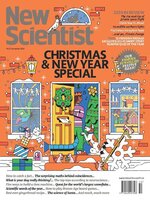 Dec 14 2024
Dec 14 2024
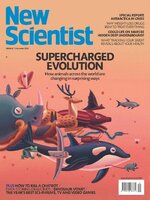 Dec 07 2024
Dec 07 2024
 Nov 30 2024
Nov 30 2024
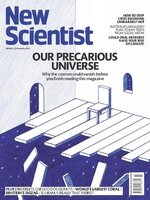 Nov 23 2024
Nov 23 2024
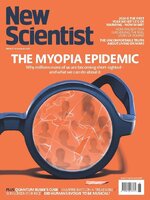 Nov 16 2024
Nov 16 2024
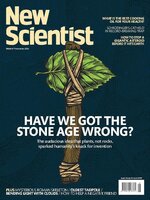 Nov 09 2024
Nov 09 2024
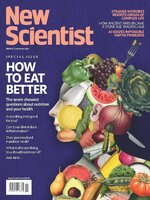 Nov 02 2024
Nov 02 2024
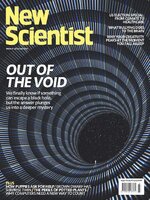 Oct 26 2024
Oct 26 2024
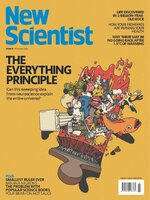 Oct 19 2024
Oct 19 2024
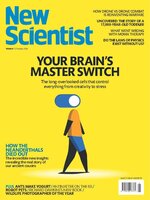 Oct 12 2024
Oct 12 2024
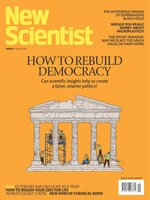 Oct 05 2024
Oct 05 2024
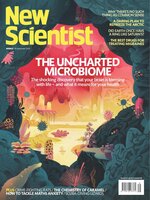 Sep 28 2024
Sep 28 2024
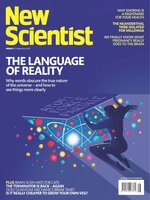 Sep 21 2024
Sep 21 2024
 Sep 14 2024
Sep 14 2024
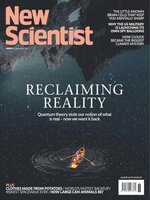 Sep 07 2024
Sep 07 2024
 Aug 31 2024
Aug 31 2024
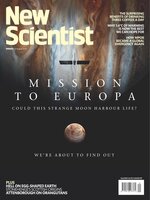 Aug 24 2024
Aug 24 2024
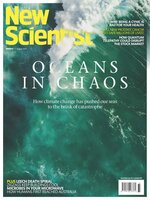 Aug 17 2024
Aug 17 2024
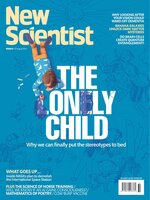 Aug 10 2024
Aug 10 2024
 Aug 03 2024
Aug 03 2024
 Jul 27 2024
Jul 27 2024
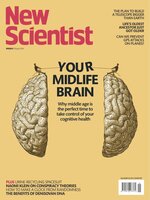 Jul 20 2024
Jul 20 2024
 Jul 13 2024
Jul 13 2024
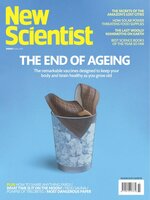 Jul 06 2024
Jul 06 2024
